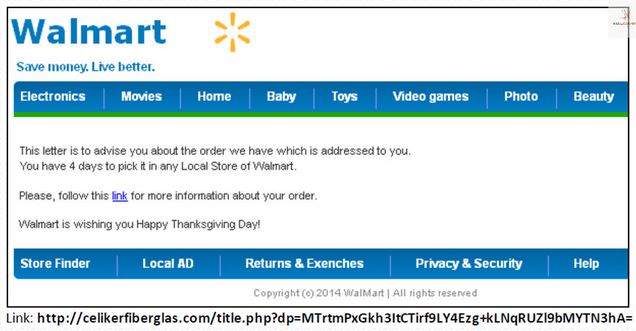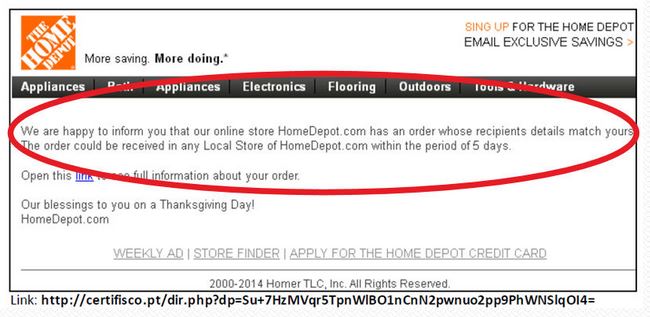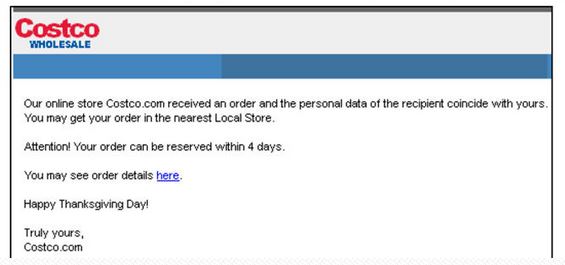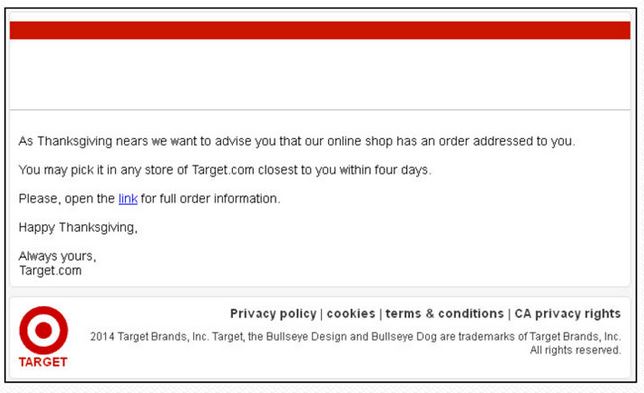Cross-site scripting (XSS) vulnerability in nextend-facebook-settings.php in the Nextend Facebook Connect plugin before 1.5.1 for WordPress allows remote attackers to inject arbitrary web script or HTML via the fb_login_button parameter in a newfb_update_options action.
Monthly Archives: December 2014
CVE-2014-9129 (cm_download_manager)
Cross-site request forgery (CSRF) vulnerability in the CreativeMinds CM Downloads Manager plugin before 2.0.7 for WordPress allows remote attackers to hijack the authentication of administrators for requests that conduct cross-site scripting (XSS) attacks via the addons_title parameter in the CMDM_admin_settings page to wp-admin/admin.php.
CVE-2014-9142 (td5130_router_firmware)
Cross-site scripting (XSS) vulnerability in Technicolor Router TD5130 with firmware 2.05.C29GV allows remote attackers to inject arbitrary web script or HTML via the failrefer parameter.
CVE-2014-9143 (td5130_router_firmware)
Open redirect vulnerability in Technicolor Router TD5130 with firmware 2.05.C29GV allows remote attackers to redirect users to arbitrary web sites and conduct phishing attacks via a URL in the failrefer parameter.
CVE-2014-9212 (altitude_unified_customer_interaction)
Multiple cross-site scripting (XSS) vulnerabilities in Altitude uAgent in Altitude uCI (Unified Customer Interaction) 7.5 allow remote attackers to inject arbitrary web script or HTML via (1) an email hyperlink or the (2) style parameter in the image attribute section.
CVE-2014-9144 (td5130_router_firmware)
Technicolor Router TD5130 with firmware 2.05.C29GV allows remote attackers to execute arbitrary commands via shell metacharacters in the ping field (setobject_ip parameter).
CVE-2014-9215 (pbboard)
SQL injection vulnerability in the CheckEmail function in includes/functions.class.php in PBBoard 3.0.1 before 20141128 allows remote attackers to execute arbitrary SQL commands via the email parameter in the register page to index.php. NOTE: the email parameter in the forget page vector is already covered by CVE-2012-4034.2.
Fake confirmation emails from Walmart, Home Depot, others in circulation
Cybercrooks target busy holiday shoppers with phishing scheme.
After all that shopping on Black Friday and Cyber Monday, consumers are reporting a bunch of phishing emails that look like authentic communications from poular stores. Malware-infected emails are reportedly coming from Walmart, Home Depot, Target, and Costco. The catch is these are not from the authentic merchants, but rather cybercrooks are using a phishing scheme to send fake emails with the intent to gather personal information from harried shoppers.
Millions of these emails are being sent each day, originating from more than 600 hacked websites that act as intermediaries, according to security analysts from Malcovery monitoring the attacks. This method prevented detection by causing the spammed links to point to websites that had been safe until the morning of the attack.
The messages have subject lines like this:
- Thank you for your order
- Order Confirmation
- Thank you for buying from Best Buy
- Acknowledgment of Order
- Order Status
If you receive one of these emails, don’t click on any links. Instead, visit the merchant’s website or call their customer service. Don’t give any personal information out unless you know for sure with whom you are speaking.
Signs of a fake email
Unfortunately, cybercrooks are becoming more professional with their scams, but here are a few things you can look for to tell a fake email from an authentic one.
- Poor grammar usage
- The Sender (the “from” line) may not match the merchant name
- Links in the email do not go to the real website
- There is no order confirmation number or details about the order. A real order confirmation email contains the details of your order without clicking on any links, as well as where it is being shipped and the payment method.
How to protect yourself
Walmart acknowledged that the fraudulent emails were in circulation and suggested these steps if you receive a suspicious email.
- If you actually placed an order and are suspicious about the email you received, log onto your Walmart.com order to check your order status.
- Keep your virus software updated on all your computers.
If you were a victim of fraud via the Internet, you should file a report with your local law enforcement agency along with the Internet Crime Complaint Center (ICCC). The ICCC is a partnership between the FBI and the National White Collar Crime Center. You can make a report with the ICCC.
Avast Software’s security applications for PC, Mac, and Android are trusted by more than 200-million people and businesses. Please follow us on Facebook, Twitter and Google+.
OpenEMR 4.1.2(7) SQL Injection
OpenEMR versions 4.1.2(7) and below suffer from multiple remote SQL injection vulnerabilities.
VMware Security Advisory 2014-0012
VMware Security Advisory 2014-0012 – VMware vSphere product updates address a Cross Site Scripting issue, a certificate validation issue and security vulnerabilities in third-party libraries.



